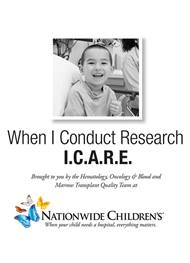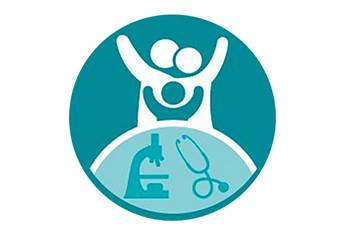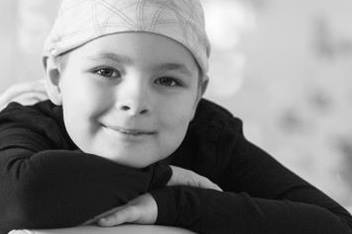Cancer Clinical Trials

Nationwide Children's Hematology/Oncology/BMT is committed to advancing both basic and clinical research. The division maintains active membership in the Children’s Oncology Group and the Pediatric Blood & Marrow Transplant Consortium, and is a research member of the International Blood and Marrow Transplant Registry. The division is also involved in other clinical research efforts aimed at improving bone marrow transplant outcomes. Hematology, Oncology and Blood and Marrow Transplant works hand-in-hand with the Center for Childhood Cancer to expand the understanding of childhood cancer and to improve strategies for its diagnosis and treatment.
Approximately 74 percent of eligible oncology patients are enrolled in clinical trials at Nationwide Children’s Hospital, making the division one of the leading cancer centers for clinical trial enrollment by the Children’s Oncology Group.
Frequently Asked Questions
A clinical trial is a research study that tests the current, most promising treatments for diseases. Most clinical trials involve the testing of well-known medications given in new ways or in new combinations with other well-tested medications that are effective in that disease. The goal of a clinical trial is to identify treatment combinations that will provide the highest success rates or the best chance of a cure with the least amount of side effects. Carefully conducted clinical trials are the fastest and safest way to find treatments that work in people and ways to improve health.
Participants in clinical trials can play a more active role in their own health care, gain access to new research treatments before they are widely available, and help others by contributing to medical research.
All clinical trials have guidelines about who can participate. These criteria are based on such factors as age, gender, the type and stage of a disease, previous treatment history, and other medical conditions. Before joining a clinical trial, a participant must qualify for the study. It is important to note that these criteria are not used to reject people personally. Instead, the criteria are used to identify appropriate participants and keep them safe.
Three different phases of medical studies called clinical trials used to evaluate new treatments for childhood cancers, as well as other diseases. Each phase has a different goal.
-
Phase I studies are the most basic of clinical trials. Here, drugs are tested to evaluate the dosages of the treatment, and how often the treatment can be administered (maximum tolerated dosages, MTD). As it is unknown whether the treatment will be effective against a particular disease, people with a variety of diseases are enrolled. Drugs are given at gradually increasing dosages until there are unacceptable side effects (dose-limited toxicities, DLT).
-
Phase II studies use the results from Phase I studies regarding MTD and DLT. The treatment is targeted at the population of patients which responded most favorably in Phase I trials, because it is believed to hold promise for that particular group of patients.
-
Phase III studies are those that most children will receive when newly diagnosed. These studies will test the standard treatment (current best) against promising alternatives that may increase cure rates or decrease side effects or late effects of treatment.
Clelie Peck
Clinical Research Coordinator
Clelie.Peck@NationwideChildrens.org
(614) 722-5634
Joanna Weinbrecht-Acree
Research Nurse
Joanna.Weinbrecht-Acree@NationwideChildrens.org
(614) 355-1232
Open Clinical Trials
Clinical trials for pediatric cancer focus on a wide variety of possible solutions to improve outcomes and quality of life. Some trials focus on combinations of medications, therapies and treatment regimens. Other trials focus on better understanding the genetics of cancer and how that impacts therapy. Additional clinical trials may test new approaches to radiation or surgery and ways to relieve side effects during treatment. Learn more about all the open trials for pediatric cancer at Nationwide Children’s by exploring the tabs below.




